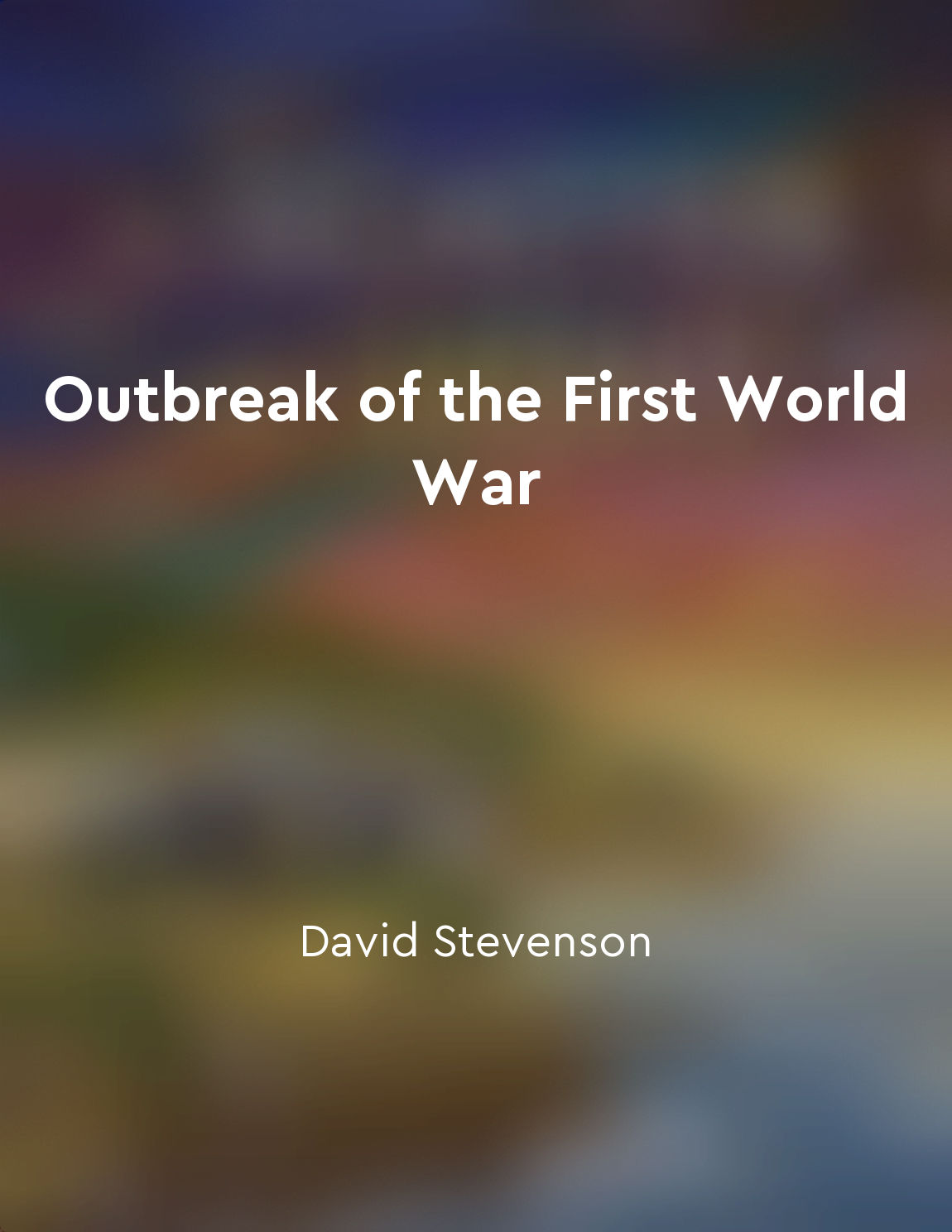Involvement of global powers from "summary" of Outbreak of the First World War by David Stevenson
The involvement of global powers in the outbreak of the First World War was an essential factor in the escalation of the conflict. The great powers of Europe, including Germany, Austria-Hungary, Russia, France, and Britain, all played significant roles in the events leading up to the war. These nations had vast empires and interests around the world, which meant that any conflict in Europe could quickly spread beyond the continent. The alliances and rivalries between these global powers further complicated the situation. The formation of alliances such as the Triple Alliance between Germany, Austria-Hungary, and Italy, and the Triple Entente between France, Russia, and Britain, meant that a conflict between any two countries could quickly draw in their allies. These alliances were intended to provide security and deter aggression, but they also created a tangled web of obligations that could easily lead to war. The involvement of global powers was also evident in the imperial rivalries that characterized the early 20th century. European nations had spent the previous decades competing for colonies and influence around the world, leading to tensions and rivalries that extended far beyond Europe. The competition for resources, markets, and strategic advantages in Africa, Asia, and the Pacific added another layer of complexity to the diplomatic relations between the great powers. The global nature of the conflict was further highlighted by the involvement of non-European powers in the war. Japan, for example, joined the war on the side of the Allies and played a significant role in the conflict in the Pacific. The Ottoman Empire, another non-European power, entered the war on the side of the Central Powers, further expanding the scope of the conflict.- The involvement of global powers in the outbreak of the First World War was a crucial factor in the escalation of the conflict. The complex web of alliances, imperial rivalries, and global interests meant that a small spark in Europe could quickly ignite a much larger conflagration that engulfed the world. The interconnected nature of the great powers' interests and obligations made it difficult to contain the conflict once it had begun.
Similar Posts
Catherine had numerous lovers
Catherine's romantic entanglements were the subject of much gossip and speculation at the Russian court. Her early years as Gra...
Europe learned from Chinese innovations
During the sixteenth century, Chinese innovations began to spread to Europe, profoundly influencing the continent's military te...

Declaration of war
The declaration of war was a pivotal moment in the outbreak of the First World War. It was the official announcement by one sta...
Political leaders failed to comprehend the full implications of war
Political leaders, in their hubris and shortsightedness, embarked on the path of war without fully understanding the grave cons...
Warfare became more destructive
The evolution of warfare during the Gunpowder Age marked a significant shift in the nature of conflict. As the use of gunpowder...

Legacy of the First World War
The impact of the First World War lingered far beyond the signing of the Armistice in November 1918. The conflict left a legacy...
The Eastern Front witnessed fierce fighting between Germany and Russia
The Eastern Front during World War I was a scene of relentless brutality and unending conflict between the forces of Germany an...
Pandemics reshaped public health policies
The impact of pandemics on public health policies cannot be underestimated. Throughout history, outbreaks of diseases such as t...

